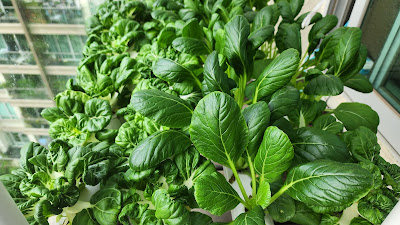
I was back in Ipoh again. This time round, I played the role of being a food guide for my bunch of foodie friends. In each visit I get to know Ipoh a bit more. She is also changing. I can see that many shops downtown are close or looked as if they have seen better times.
Thankfully the food scene is still strong and vibrant.
One delightful discovery on our trip was Woong Kee Beancurd (tofu fa)—a hidden gem known mostly among locals and still under the radar for many tourists. You might wonder, how much better can tofu fa get? If your reference point is Singapore’s Selegie version, you may think you’ve already tasted the best. But as with many dishes, there’s always a version somewhere that raises the bar—and once you’ve tried it, every other version is measured against it.
Woong Kee began as a modest stall in Bercham, and has since expanded into the heart of town and also to Menglembu. Ipoh, with its famed water quality and culinary heritage, has always been known for excellent tofu-based desserts, and there are several outstanding stalls. One owner once shared with me that what separates the best from the rest is the painstaking effort it takes to ensure a truly smooth beancurd.
But Woong Kee goes one step further: they serve their tofu fa hot, not at room temperature. The beancurd is kept on a gentle stove fire, ensuring that each bowl is served piping hot. This not only enhances the texture—keeping it luxuriously smooth—but also elevates the overall experience. All things being equal, a warm bowl simply tastes better and keeps the beancurd smooth texture-wise.
It’s not rocket science, but it does take commitment. Kudos to the team at Woong Kee for going the extra mile—not just in preparation, but in presentation and timing. After all, if so much care goes into crafting something well, it only makes sense to serve it at its best in terms of temperature and texture.
It reminds me of why sushi is served via conveyor belt in some restaurants: the chef wants you to taste it immediately after it’s mad. It’s a nod to the Japanese pursuit of perfection. In the same spirit, Woong Kee’s tofu fa reflects that same reverence for excellence—even in something as simple as a bowl of tofu fa.
They also add other stuff like grass jelly and glutinous rice balls but if you are here for tofu fa, there is no reason to embellish perfection.
Will this type of quality reach Singapore? We continue to hope!























